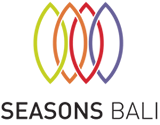Recovery never comes easily, and it would be even harder if one stays near home.
This is because staying near home brings with it familiar surroundings, which remind you of the places where you can easily access your habits and routines, hence temptations are hard to resist.
All it takes is having reminders of the past everywhere around you to help you get off track from your journey to healing.
There is also the element of comfort. Being so close to home, you may pop out “for a second,” which could then draw you into taking a breather and missing a session or two and sliding right back into your old ways, stalling your very progress.
Remember – recovery requires commitment. Sometimes, this can mean physically removing yourself from familiar environments to give yourself a chance to start anew.
Going to some remote place for your treatment and staying in a rehab that is quite strange to you can be quite overwhelming at first. Yet, it is a very powerful way to put space between you and the patterns that you need to break free from.
Although having a strong support system can help, you should also give top priority to yourself. Your family and friends can still visit you. But the main priority is your recovery. Establishing a distance allows clarity and focus, which helps you achieve a healthier and lasting foundation for your future.
Can Recovery Cause Bad Habits?
Surprisingly to some, the answer is yes—recovery, while focused on healing, can sometimes open the door to other problematic behaviours. That doesn’t mean recovery is harmful or counterproductive. But it does mean that the journey to sobriety is complex, and being aware of the potential for developing new bad habits along the way is an important part of staying grounded.
When a person quits using substances, he or she is not only cutting out a habit but also taking out a coping mechanism. Otherwise, without good replacements, it is easy to reach other outlets to fill that void.
For example, one can start overeating or smoke more and become overly dependent on relationships, and get compulsive in ‘good’ behaviours like excessive shopping or gambling. These ‘new’ habits may initially seem harmless, but they can distract from long-term healing.
Some people also hit a plateau in their recovery and begin to feel restless or uncomfortable. Instead of facing that discomfort head-on, they may seek temporary relief in unhealthy routines. Others may feel like simply quitting drugs or alcohol was enough, and then start to settle for a version of life that lacks growth or meaning.
Lastly, there is the matter of what psychologists call an “addictive personality” or, rather, a propensity to impulsivity, poor stress management, and extremes that may stay with someone even post-sobriety. This renders people more vulnerable to developing substitute addictions or habits.
One should remember that recovery is a process, not just a one-time fix. It takes years to address deeper-rooted behaviours and habits, and that’s perfectly fine. There’s no striving for perfection, just progress. Most individuals in recovery are concentrating first on staying sober and only begin touching other issues once they’ve achieved some stability, like smoking, bad diets, or negative thoughts.
Being Mindful Of Your Bad Triggers
Every day, subtle or very subtle cues (micro-triggers) constantly surround us, creating the necessary background that provokes us to certain types of behaviour. They may appear in the form of external signs like a scent or location, while sometimes, they can be internal, such as a surge of emotion or a passing thought.
All these signs work forcefully and mostly subconsciously, operating beneath the surface of our awareness, quietly nudging us toward habits we may be trying to break.
Changing a harmful habit really depends on your awareness of these triggers. Start by being observant. Be curious and aware instead of being critical. Maintaining a habit log is among the most efficient methods to accomplish this. Every time you feel the need to revert to an old routine, pause to record a few specifics:
Location: Where are you at that moment?
Time: What time is it?
Mood: How are you feeling?
People: Who’s around you?
Action: What were you doing just before the urge hit?
Self-awareness is probably the most crucial tool in the whole recovery process. It’s not just knowing your habits but understanding them entirely on another level. When you can track the patterns behind the behaviours, you will understand how certain emotions, environments, or even people can ‘trigger’ unhealthy responses out of you, and this insight gives you something incredibly valuable.
Rather than reacting automatically, self-awareness makes you pause, think, and respond with more purpose. You start catching them before they get out of hand. You say to yourself, “I always feel this way after a long day,” or, “I want to get away when I am stressed or by myself.” It’s this type of insight that makes genuine, lasting change possible.
Realisation is not always easy; it does not happen in a single night. But even the smallest realisations, such as recognising when and where a specific time of the day or place is leading to temptations, can make a big impact. These little moments of clarity add up over time. They start creating distance between yourself and the habit you’re trying to kick and allow room for healthier alternatives to take root.
Social & Professional Impact
Let’s face it: there is still a stigma attached to addiction, and that can be one of the most painful parts of the recovery process. The vast majority of people do not ‘get it’; addiction is not about being morally weak or failing, it is about suffering from a disease. They may look at a person plagued by substance use and make assumptions, give unsolicited advice, or worse, pass judgment without really knowing what it takes to stay clean.
If you are thinking of going out of state for treatment, understand that it’s not about running away from the problems but granting yourself leeway to heal without the added pressure of having to manage other people’s opinions. Wanting to dodge local gossip, whispers, looks, or awkward questions does not make you weak; it makes you human. Recovery is already personal and emotional as a journey; you do not need the extra burden of defending your choices to people who may never understand what you’re going through.
Choosing a treatment centre far from your hometown also sets a buffer – an atmosphere in which to focus on yourself, away from all judgment or misunderstanding. It allows you to give yourself permission to put a premium on healing without the fear of running into somebody you know or rumours about your condition finding their way back. It allows you to keep your privacy, renew your strength, and come back home on your terms when you are ready.
To add to this, a new perspective and positive mindset can come with being in new surroundings, and sometimes, the new you requires being somewhere completely different so that you can learn to be you again and start living the life you truly deserve.
Transformation Starts Here
Getting help is often the hardest step to take towards recovery. But then, isn’t it also the bravest and most life-altering choice one can make? Whether this is for you or a loved one, if you realize that the intervention is necessary, consider that a moment that says:
“I want something better. I believe change is possible!”
Addiction does not just affect the person struggling with it, but ripples through families, relationships, careers, etc. But so does recovery. As you start to heal, everything around you starts to shift for the better. Healing is not instant, and it certainly is not easy, but it is entirely possible with the right support, guidance, and environment. And that’s where we come in.
We have helped thousands of people over the past 20 years to free themselves of addiction. Being South East Asia’s leading facility for addiction recovery, we don’t just treat the symptoms. We treat the person in their entirety. We are aware that everyone has a different story to tell, and that is why we give personalised care based on compassion, evidence-based techniques, and great respect for every individual’s journey.
You’ll have the backing of a team of caring professionals, most of whom have been through recovery themselves. Here, you’re not just a number–you’re somebody with a name, a past, and most importantly, a future.
When you choose to take your recovery journey with us, you’re not just entering a facility; you’re entering a safe, peaceful abode where you can freely breathe, reset, and begin to build a life that feels fulfilling and free. Our serene setting, far away from distractions and judgment, will help you completely focus on yourself and your healing.
If you or someone close to you is ready to begin this journey, don’t wait. Reach out today. Transformation truly starts here—with one brave step, one phone call, one decision to say yes to a better tomorrow!
You’re not alone. And you don’t have to do this on your own.





